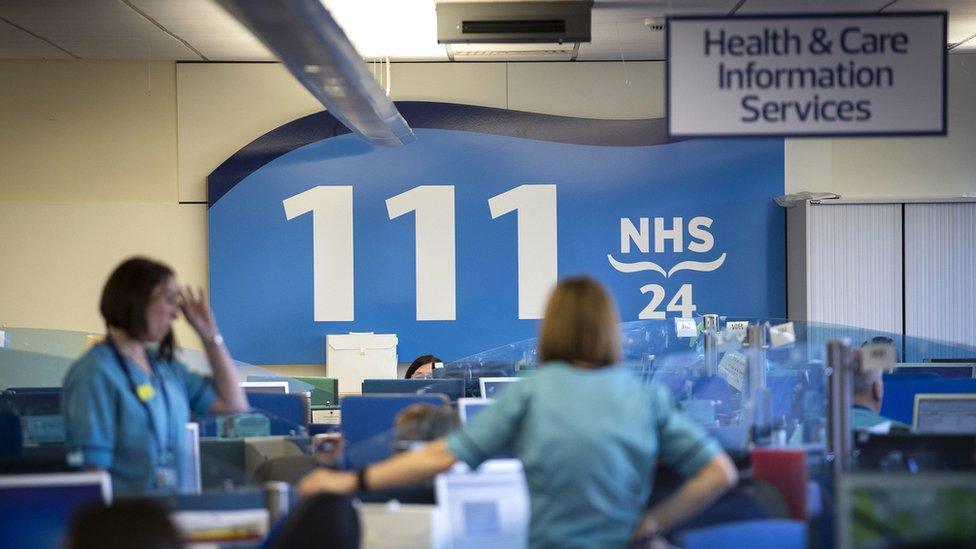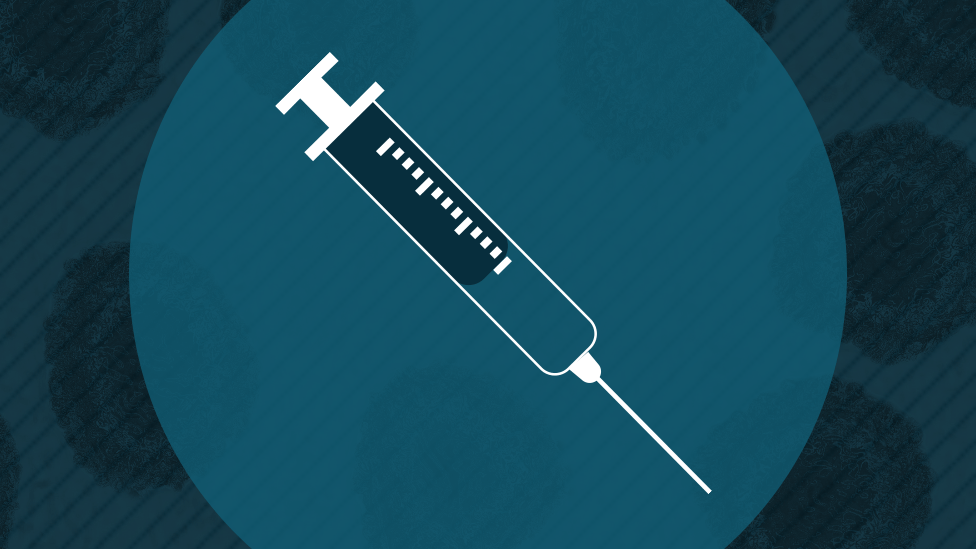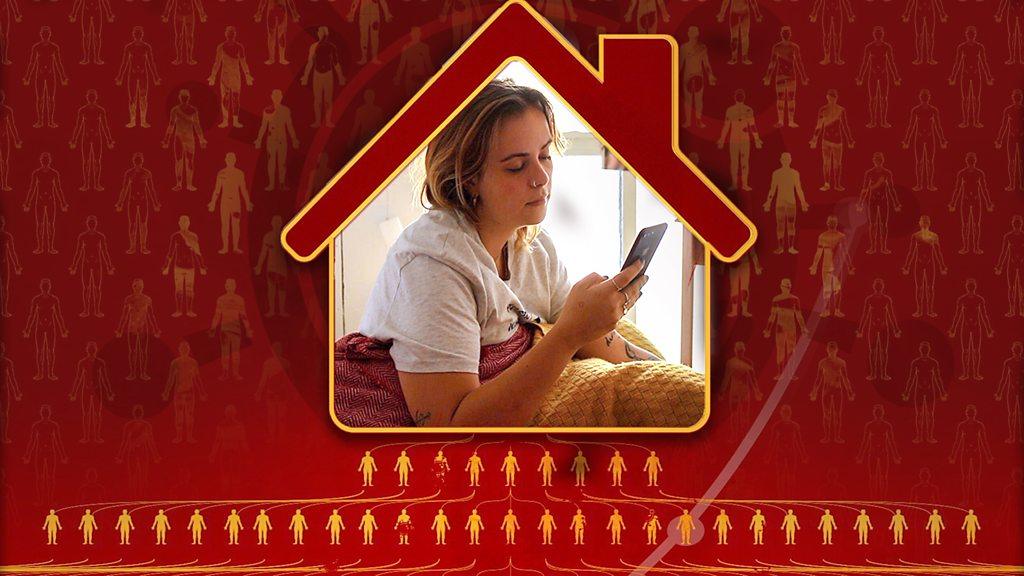Deaf community concerned over Covid-19 information
- Published

Members of the deaf community say they are concerned that some recommended sources of information about Covid-19 are not available to them.
Northern Ireland was given access to the NHS 111 helpline at the end of February.
In the rest of the UK, the service is accompanied by an online sign language relay service, so deaf people can use the number.
But that is not available yet in Northern Ireland.
Northern Ireland's Health and Social Care Board said it was aware of the difficulties NI-based sign language users were having.
"We are working with the Department for the Communities on a service for the deaf community to access health and social care services," said a statement.
"We have also been working with the British Deaf Association to have public health messages as well as the Department of Health letter to the vulnerable signed, and these videos can be found here, external."
Second-class citizens?
Jeff McWhinney, who is originally from Northern Ireland but now living in England, helped set up the translation service.
He said deaf people have tried to get through to the helpline by pretending they live in other parts of the UK.
"But that’s not acceptable," he said.
“It feels as though you are very much a second-class citizen. You’re less than everyone out there.
"At a point in your life when you’re very vulnerable, very worried, very concerned, you use the system that’s in place for everybody else, and you can’t get through.”

EASY STEPS: How to keep safe
A SIMPLE GUIDE: What are the symptoms?
CONTAINMENT: What it means to self-isolate
HEALTH MYTHS: The fake advice you should ignore
MAPS AND CHARTS: Visual guide to the outbreak
VIDEO: The 20-second hand wash

'These are just excuses'
Mr McWhinney said he has asked why the translation service cannot be made available.
“I’ve been given various reasons. One is people can’t get through, also it’s all technically based and it’s too difficult for people to use who are elderly etc. But these are all just excuses.”
He also said the authorities need to have a plan for when deaf people are admitted to hospital with the virus.
“This is even worse for the deaf community, because if you imagine, if you’re being treated and you’re suspected to have the virus, everyone coming at you is wearing some kind of mask," he said.
"Their faces are covered, so it’s impossible to lip-read and communication is essentially blocked off.
“Deaf people themselves probably need to make more noise about it, but the policy makers themselves need to listen a lot more than they’re doing so far.”
- Published28 May 2021

- Published6 October 2021

- Published24 March 2020
